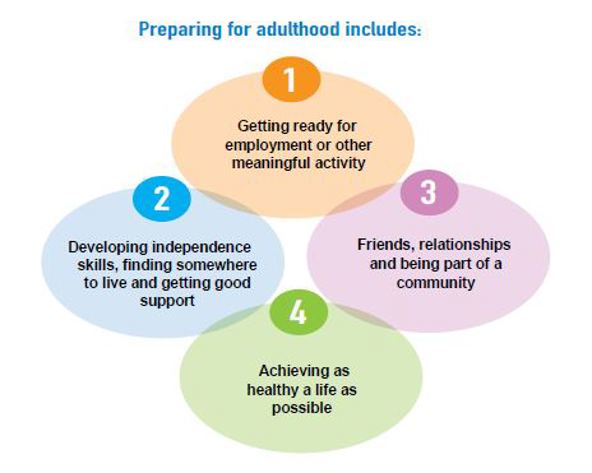Who's responsibility is it?
Preparing for adulthood is everyone’s responsibility. This helps all young people SEND, not just those with an Education, Health and Care Plan.
You can help with preparing for adulthood. Your parent or carer, or another person who knows you well can help too. Staff in schools and colleges, health, care, community services and the voluntary sector can help you.
An important part of preparing for adulthood is making your hopes and views heard.
